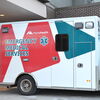Processing Your Payment
Please do not leave this page until complete. This can take a few moments.
- News
-
Editions
-
- Lists
-
Viewpoints
-
Our Events
-
Event Info
- Business Leaders of the Year Reception 2025
- Women's Leadership Forum 2025
- On the Road with Mainebiz in Bethel
- Health Care Forum 2025
- On The Road with Mainebiz in Greenville
- On The Road with Mainebiz in Waterville
- Small Business Forum 2025
- Outstanding Women in Business Reception 2025
- On The Road with Mainebiz in Bath
- 60 Ideas in 60 Minutes Portland 2025
- 40 Under 40 Awards Reception 2025
- On The Road with Mainebiz in Lewiston / Auburn
- 60 Ideas in 60 Minutes Bangor 2025
Award Honorees
- 2025 Business Leaders of the Year
- 2024 Women to Watch Honorees
- 2024 Business Leaders of the Year
- 2023 NextUp: 40 Under 40 Honorees
- 2023 Women to Watch Honorees
- 2023 Business Leaders of the Year
- 2022 NextUp: 40 Under 40 Honorees
- 2022 Women to Watch Honorees
- 2022 Business Leaders of the Year
-
-
Calendar
-
Biz Marketplace
- News
- Editions
- Lists
- Viewpoints
-
Our Events
Event Info
- View all Events
- Business Leaders of the Year Reception 2025
- Women's Leadership Forum 2025
- On the Road with Mainebiz in Bethel
- Health Care Forum 2025
- On The Road with Mainebiz in Greenville
- + More
- On The Road with Mainebiz in Waterville
- Small Business Forum 2025
- Outstanding Women in Business Reception 2025
- On The Road with Mainebiz in Bath
- 60 Ideas in 60 Minutes Portland 2025
- 40 Under 40 Awards Reception 2025
- On The Road with Mainebiz in Lewiston / Auburn
- 60 Ideas in 60 Minutes Bangor 2025
- - Less
Award Honorees
- 2025 Business Leaders of the Year
- 2024 Women to Watch Honorees
- 2024 Business Leaders of the Year
- 2023 NextUp: 40 Under 40 Honorees
- 2023 Women to Watch Honorees
- 2023 Business Leaders of the Year
- + More
- 2022 NextUp: 40 Under 40 Honorees
- 2022 Women to Watch Honorees
- 2022 Business Leaders of the Year
- Nomination Forms
- Calendar
- Biz Marketplace
Bowdoin will sharply reduce the number of students on campus this fall
 File Photo / Renee Cordes
The 207-acre campus of Bowdoin College is in Brunswick.
File Photo / Renee Cordes
The 207-acre campus of Bowdoin College is in Brunswick.
Bowdoin College, which has 1,830 students and is a mainstay for Brunswick's economy, said today it will greatly reduce the number of students on campus, offering most classes online.
Campus will be restricted to first-year and transfer students; students whose home situations make "online learning nearly impossible," a small number of senior honors students; and residential life staff. Other students will take courses online, Bowdoin announced in a letter from President Clayton Rose posted on its website.
For the spring 2021 semester, they'll flip it around, with first-year and transfer students working remotely and the older students on campus.
Bowdoin's intercollegiate sports have been cancelled for the fall semester. New England Small College Athletic Conference is still developing plans for winter sports.
The private, liberal arts college attracts students from around the world. Last year, its tuition was $55,822, with room and board and other fees bringing the total to $73,800 for the academic year. This semester, on-campus students will pay $33,935, while off-campus students will pay a fee of $27,911.
Colleges throughout Maine have adopted a range of strategies to combat the spread of COVID-19.
Bates College in Lewiston will use a condensed "2+2" format, with each semester broken into two 7.5-week modules, with a semester's worth of work in "more intensified form," the college announced June 12. Other plans include adding time between classes and spreading out meal times. Bates plans to have students return in phases. But all of this is based on whether it is safe to carry out the plans, the school said.
University of New England has said it plans to reopen this fall, but it also drafted an extensive plan to allow for social distancing.
Earlier this month, a group of schools led by the University of Maine System released guidelines intended for all 38 college- and university-campuses in Maine. It hopes to offer in-person, on-campus experiences, but also calls for flexibility, responsiveness, empathy and science. And, with the COVID-19 situation continually changing, it's likely plans will continue to evolve.
Maine's colleges and universities have 72,600 students and 20,000 employees, including student workers. They have an estimated economic impact of $4.5 billion, including the multiplier effect of spending by students, employees and visitors to the state.
Cost-cutting measures
Bowdoin said it does not plan staff furloughs.
"Our faculty and staff will be at full strength, with 'all hands on deck' to support the mission of the College in a very different environment," Rose wrote in the letter.
But the college expects to have "a substantial budget deficit this next year, likely the largest we have ever had by a significant margin," Rose wrote.
As part of cost-cutting procedures, senior officers will see a 10% reduction in salary; Rose himself took a 20% cut, he said. Contributions to the retirement fund were cut by 50% for next year. Hourly workers will see a "modest increase" in wages, with the college honoring its commitment to increase the minimum wage to $14, he said.
Bowdoin had an endowment of $1.74 billion as of June 30, 2019, though Rose did not indicate whether that would be used.













0 Comments